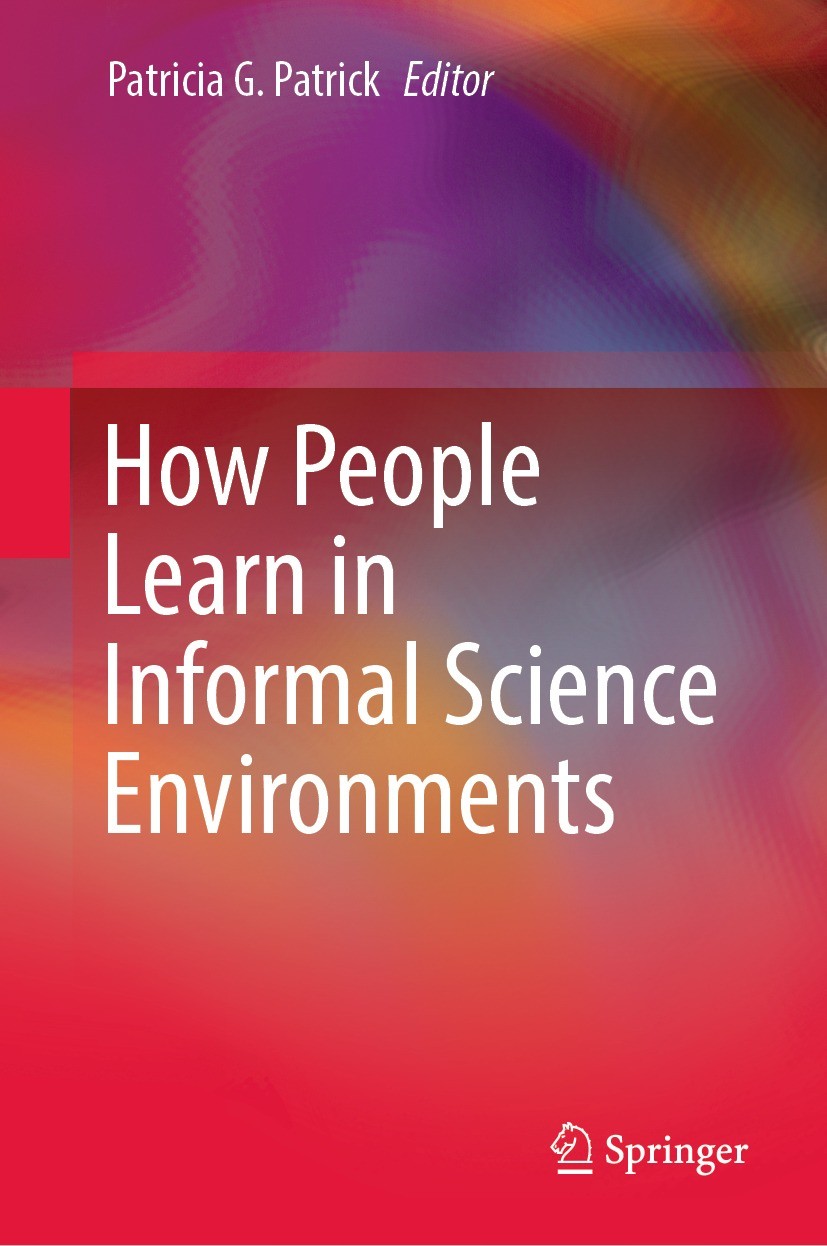| 書目名稱 | How People Learn in Informal Science Environments | | 編輯 | Patricia G. Patrick | | 視頻video | http://file.papertrans.cn/429/428673/428673.mp4 | | 概述 | Presents learning theories across informal science learning environments.Explains why the theory is important to future research endeavors.Provides perspectives on learning outside the classroom | | 圖書封面 |  | | 描述 | .This edited volume brings together an international perspective of 22 diverse learning theories applied to a range of informal science learning environments. The book is divided into 7 sections: community of practice, critical theory, identity theory, sociocultural, socioscientific, and social entrepreneurship, systems theory, and theory development. The chapters present how researchers from diverse backgrounds and cultures use theories in their work and how these may be applied as theoretical frameworks for future research. The chapters bridge theory and practice and collectively address a wide range of ages (children-adults) and contexts. The book is written to engage a broad audience of researchers in universities and museums, while appealing to the growing number of researchers and educators who recognize the importance of informal learning to the development of environmental and scientific literacy. It is essential reading for inexperienced researchers and those seeking new theoretical perspectives.. | | 出版日期 | Book 2023 | | 關(guān)鍵詞 | Informal Science Education; Informal Science Learning Theories; Learning Theories; Sociocultural Theory | | 版次 | 1 | | doi | https://doi.org/10.1007/978-3-031-13291-9 | | isbn_softcover | 978-3-031-13293-3 | | isbn_ebook | 978-3-031-13291-9 | | copyright | The Editor(s) (if applicable) and The Author(s), under exclusive license to Springer Nature Switzerl |
The information of publication is updating

|
|
 |Archiver|手機(jī)版|小黑屋|
派博傳思國際
( 京公網(wǎng)安備110108008328)
GMT+8, 2025-10-7 14:08
|Archiver|手機(jī)版|小黑屋|
派博傳思國際
( 京公網(wǎng)安備110108008328)
GMT+8, 2025-10-7 14:08


